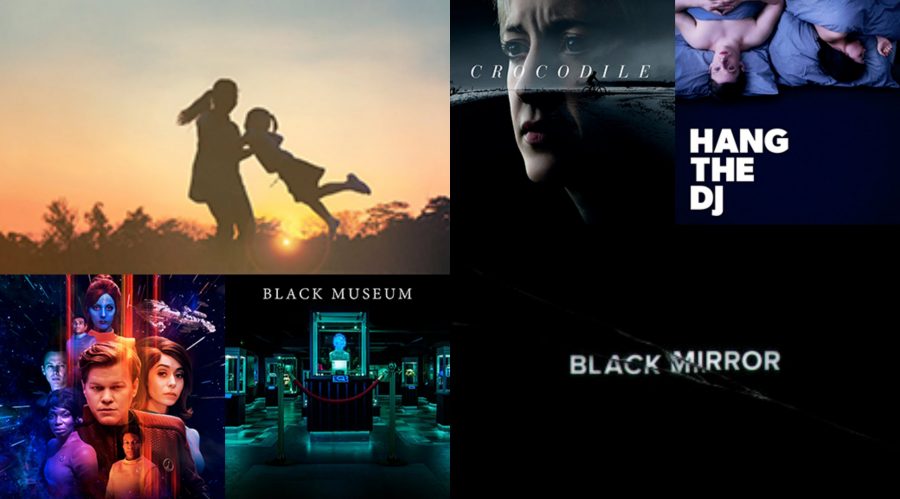Right before 2017 ended, the new season of Netflix’s Black Mirror was out. Having teased us with a few trailers in the past few months, the excitement had peaked, considering season three had a heartwarming episode like ‘San Junipero’ and ended it with a terrifying ‘Most Hated In The Nation’.
Out with six episodes, this season is, for once, not as cynical or depressing as the past few seasons. Dabbling with the impact of technology in a somewhat dystopian world, season four has its heart in the right place with three not-so dreary episodes, and three absolutely terrifying.
The first episode ‘USS Callister’ is about a loner called Robert Daly, a programmer and the co-founder of a popular online game. While at office he appears to be a pushover and gets bullied by his colleagues, often viewed as a creep. But in the privacy of his own house, Robert somehow makes up for it and is somewhat of an evil captain in the virtual world. Using his co-workers’ DNA to create digital clones of them, Robert runs the same game secretly but with crucial changes – all the colleagues who have either pissed him off or were not so nice to him are alive and kicking in his game, and are ill treated and bullied. All of this changes when Nanette Cole, a new employee becomes part of his game.
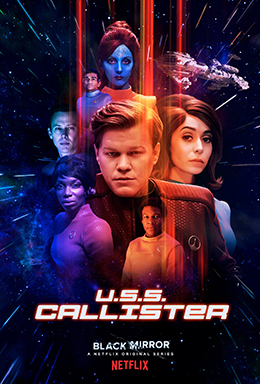
The episode has a very Star Trek-like feel, with evil overlords, space wars, and space monsters all around. To Robert, it’s a world he has created and boy, he loves being the bully, especially when the clones are too submissive to him. Nanette, however, much like the real her, is not someone who would tolerate such behaviour. She does what nobody dared to try – stand up against the bully. Realising that the only way to escape the game is by getting killed, obviously sanctioned by Robert himself, Nanette rakes up a storm among the other submissive clones, concocting a plan that would help them escape and annihilate Robert’s online world.
The special effects in this episode are to watch out for, borrowed characters and lines but with a story that has the oppressors falling and the oppressed winning.
The second episode is called ‘Arkangel’ that deals with the whole bane of merging parenting and technology together, leading to one massive breach of privacy of an individual. After briefly losing her little daughter, Sara, while playing at the park, Marie registers for the Arkangel programme, where a device is fitted inside her daughter’s brain that enables Marie to watch what she (Sara) sees with the help of a tablet. The device has options such as filtering what her daughter sees, blurring things that could rise her anxiety level, and basically keep an eye on everything that Sara does. In other words, Marie spies on her daughter. And she is obsessed with it.

It takes a toll on her when one day, she sees a 15-year-old Sara having sex with a boy. And all hell breaks loose when Sara finds out.
This is one of the episodes from the season where the burden of technology is explored, particularly when one’s privacy is jeopardised. It feeds into the paranoia most young adults have of their parents finding out what they’ve really been up to, painting a darker picture of how far a child’s fear would take them.
Third episode ‘Crocodile’ is a sneak peek into the mind of a paranoid murderer, and how technology makes its difficult to escape. Mia is a speaker with a happy family, a husband and a son. When she heads to another place for work, her past catches up with her in the form of her ex-boyfriend. He, a former drunk, wants to make amends and fix the past, where the two of them while on a trip in an icy mountain years ago ran over a cyclist and threw his body into the river.
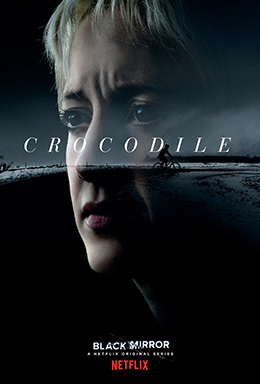
Mia’s fears make her react in a way that there will be consequences. As a seasoned Black Mirror watcher, it goes without saying that no deed goes unpunished, and over time, Mia’s fears take full control, convincing her that there’s always a way out. Even if it includes going on a murderous rampage.
The technology in this episode is straight out of the world of Big Brother. Insurance agents move around with a memory recaller device that enables them to dig into a person’s memory and see if they’ve been lying or simply get evidence to pursue a case. It’s mandated by the government and completely eliminates one’s excuse that they’ve forgotten past events, digging deep into the recesses of their mind and catching visuals of the exact culmination of events.
The fourth episode ‘Hang The DJ’, is perhaps the best episode from this season, an episode that is reminiscent of the award-winning episode ‘San Junipero’ from the previous season. Amy and Frank use a dating app that brings them together, an app that functions in a sealed-off world and using data and algorithm, matches the two of them and even states the duration of their relationship which is only 12 hours. But Amy and Frank hit it off pretty well. The other relationships they get into, with different partners, is never the same. However, after years, they get paired up again and realise that they are in love, even though the system states that they wouldn’t last forever. And like most lovers set in a world that goes against them, the two rebel.
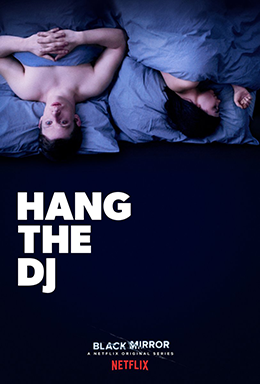
Satisfying and not too complicated, ‘Hang The DJ’ is cheesy in parts, a quality that is so unlike Black Mirror. Here, cynicism takes a backseat and the saying ‘love triumphs all’ takes over. Amy and Frank’s chemistry is so infectious that it would be wrong to not see them together. And in some strange way, the episode makes you believe in happy endings.
The fifth episode ‘Metalhead’ is fairly disappointing, and occasionally engaging. A some sort of apocalypse has taken over where ‘guard dogs’, small robots that can kill you in a jiffy with a crazy battery life, prowl the streets. A woman is trying to escape from one of them, a massive chase ensues. The whole episode deals with the question – would she survive this?
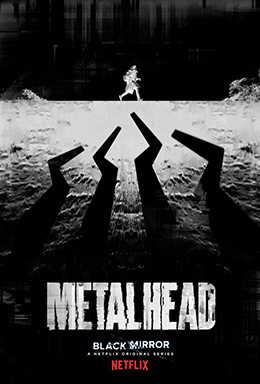
‘Metalhead’ begins with no background information. Initially with a few more characters, the episode narrows it down to just one character who is so hell-bent on getting a mysterious box but soon it becomes a struggle for survival. With no explanation, the story veers from one place to another, hoping that the end would be satisfying. Sadly, there’s none of that, ending as abruptly as it began. But, if anything, the whole idea of having this dangerous ‘guard dogs’ everywhere is pretty unsettling.
The final episode titled ‘Black Museum’ has the perfect combination of everything that could go wrong with technology and everything that could make it right. Rolo Haynes is some sort of a former mad scientist who opens the Black Museum where he showcases all the devices he’s ever invented and the stories behind them. One is funny, one is disturbing, and the final one is plain sad. He narrates the stories to a solo visitor, Nish. Things take a turn when one of the “artifacts” on display gains the upper hand.
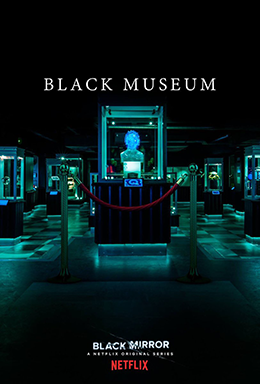
The episode takes on all those horror museums, but with a touch of science. The stories Rolo narrate are deliberately unsettling, one dealing with voices in the head, the other dealing with pleasures from intense pains, and the final that has racism and sadism melded together.
Not only is the episode engaging, the bizarre scenarios Rolo creates of the devices he’d invented are amusing enough for you to indulge him, but there’s always a ‘but’ that succeeds with each story. His devices might be helpful ‘but’ it always paves way for something worse.
However, this season of Black Mirror has had fewer sad endings. Instead of fighting against technology, the humans this season fight along with technology, realising that the real enemies are just, living and breathing people.
